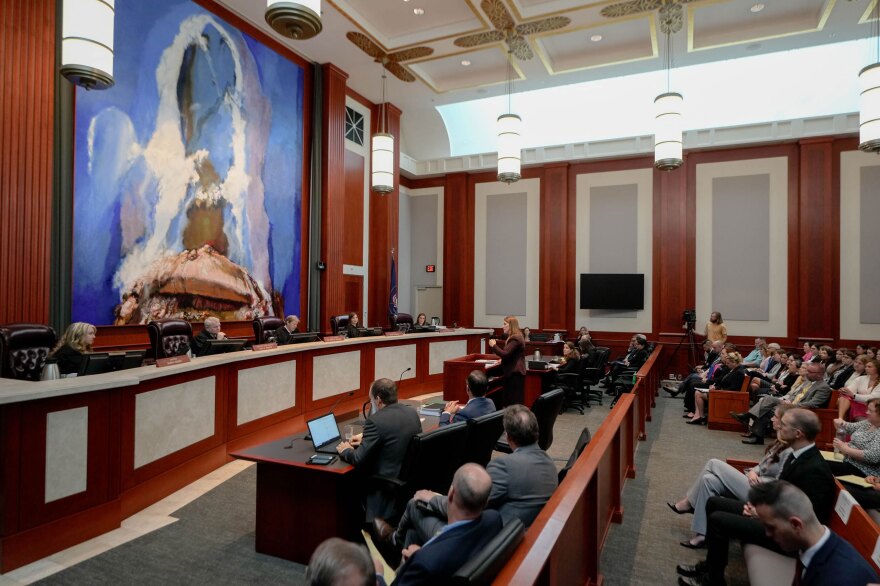The Utah Supreme Court works on its own calendar. Lawmakers though are anxious for some decisions.
Last summer, the state’s highest court heard arguments in two big cases. The first, in July, was a challenge to Utah’s Legislature-approved congressional maps. The second, in August, was about the state’s so-called abortion “trigger law.”
For both cases, time is starting to press. It’s an election year, after all, with the state’s House seats up for reelection. And it’s been almost two years since a judge blocked the trigger law after Roe v. Wade was struck down. So when lawmakers repealed the state’s 2023 ban on abortion clinics during the 2024 legislative session, it wasn’t because they had a change of heart.
“The whole purpose of this bill, as babies' lives hang in the balance, really, is that we want our trigger bill,” Republican Rep. Karianne Lisonbee told lawmakers at a Feb. 26 committee hearing. “We believe it will be upheld as constitutional and we want that decision made.”
Because parts of the trigger law and clinic ban are enjoined, Lisonbee and Republican co-sponsor Sen. Dan McCay argued that repealing portions of the clinic ban would simplify the question before the state supreme court and expedite a ruling on the trigger law. On March 1, McCay told the Senate that “the most important thing for protecting life is reaching a decision on the constitutionality of the trigger law.”
If the Legislature prevails in its arguments for the trigger law, it would effectively ban elective abortion statewide with narrow exceptions in the cases of rape, incest or if the life of the mother is in danger.
HB560 passed on the final day of the session and now awaits the signature of Gov. Spencer Cox.
While some lawmakers hope to nudge the court, legal scholars say that’s not always how the process works.
“You might think, well, all Utah has to decide is is there a right to abortion, or even worse, the assumption that these are justices who are themselves deciding whether they think there should be a right to abortion,” said Louisa Heiny, a professor at the S.J. Quinney College of Law at the University of Utah. “Those aren't the questions that are in front of this court.”
The real questions, Heiny said, are much more complicated than whether or not there is a legal right to an abortion in Utah.
“For example, they have to decide what, if any, Utah constitutional rights are impacted. One of the parties, I think, cited something like seven different constitutional provisions … So that's going to take some time to decide which rights might be impacted.”
Heiny added there can also be different legal standards that need to be applied for each of those rights. So when it comes to whether or not HB560 could influence the court’s timing, that depends on how the court interprets the changes to the law.
“There can be a statutory change that moots out some part of the case, and really does take away an issue that the court might have been struggling with,” she said. Or it could be a big enough change “that the court has to send it back to essentially start over.”
That same “fundamental question of power” exists in the constitutionality arguments over the redistricting process after the 2020 census. The plaintiffs say lawmakers went too far when they made a voter-approved redistricting committee advisory and then drew their own maps. As the Legislature sees it, however, they have equal power as the people.
“Who has the right to make those maps? Then secondarily, there are constitutional issues of were the maps done properly?”
Regardless of the timing of the decision on either case, Heiny said courts usually try to rule as narrowly as they can, especially when it comes to constitutional questions.
“When we look at a case in front of us, we might think, well, you can just decide this one thing,” she said. “But later parties are going to look back on that and use it to make arguments in a different fact pattern.”
Right now, Heiny said there is no guarantee the Utah Supreme Court will make a ruling on either case in the near future. These decisions will have “huge impacts and also is going to be something the court's going to be very careful with. And that takes time.”






